Dear passengers, this is Captain Abu speaking.
On this trip down memory lane, we'll be flying over Xinjiang's Tianshan Mountains, where my journey began. So sit back and enjoy the success story of how a Uygur boy reached for the skies and earned his pilot wings.
URUMQI, May 4 (Xinhua) -- As a Uygur boy, every time Abuduerxiti Abulaiti caught glimpses of eagles soaring high in the sky and over the pastures in Xinjiang Uygur Autonomous Region, northwest China, he always wondered what it would be like to fly.
Decades later, that same kid grew up to be an aircraft pilot. Captain Abuduerxiti Abulaiti, as he is called today, now wonders whether there's a child looking up at his plane, dreaming about flying just like he did.
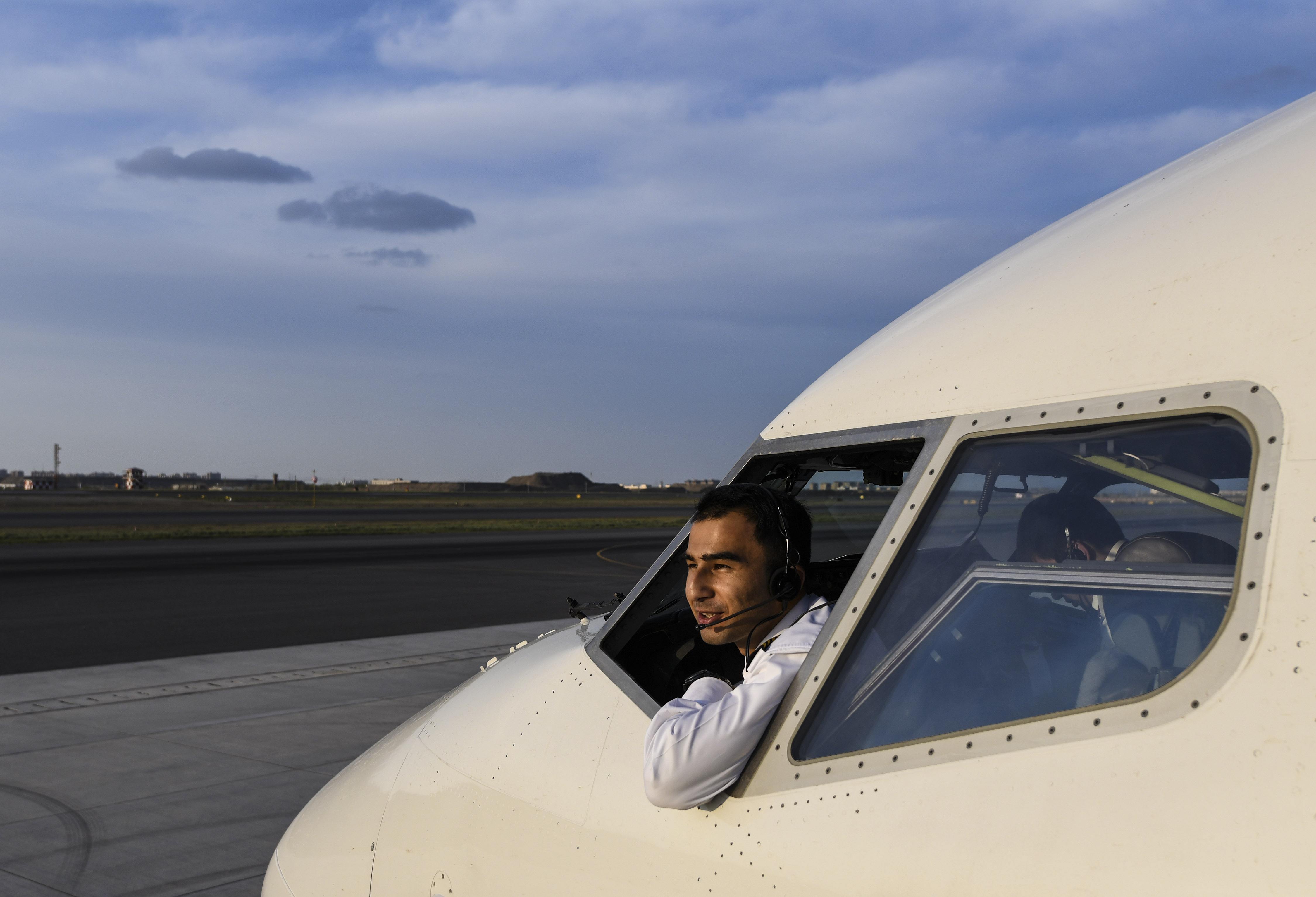
Abuduerxiti Abulaiti looks out the window on an aircraft at Diwopu International Airport in Urumqi, northwest China's Xinjiang Uygur Autonomous Region, April 17, 2020. (Xinhua/Wang Fei)
His work ethic, intelligence and handsome looks earned him the nickname of "Captain Abu" by his colleagues.
"Becoming a pilot was an unrealistic childhood dream. Now it's a dream come true," said the 34-year-old.
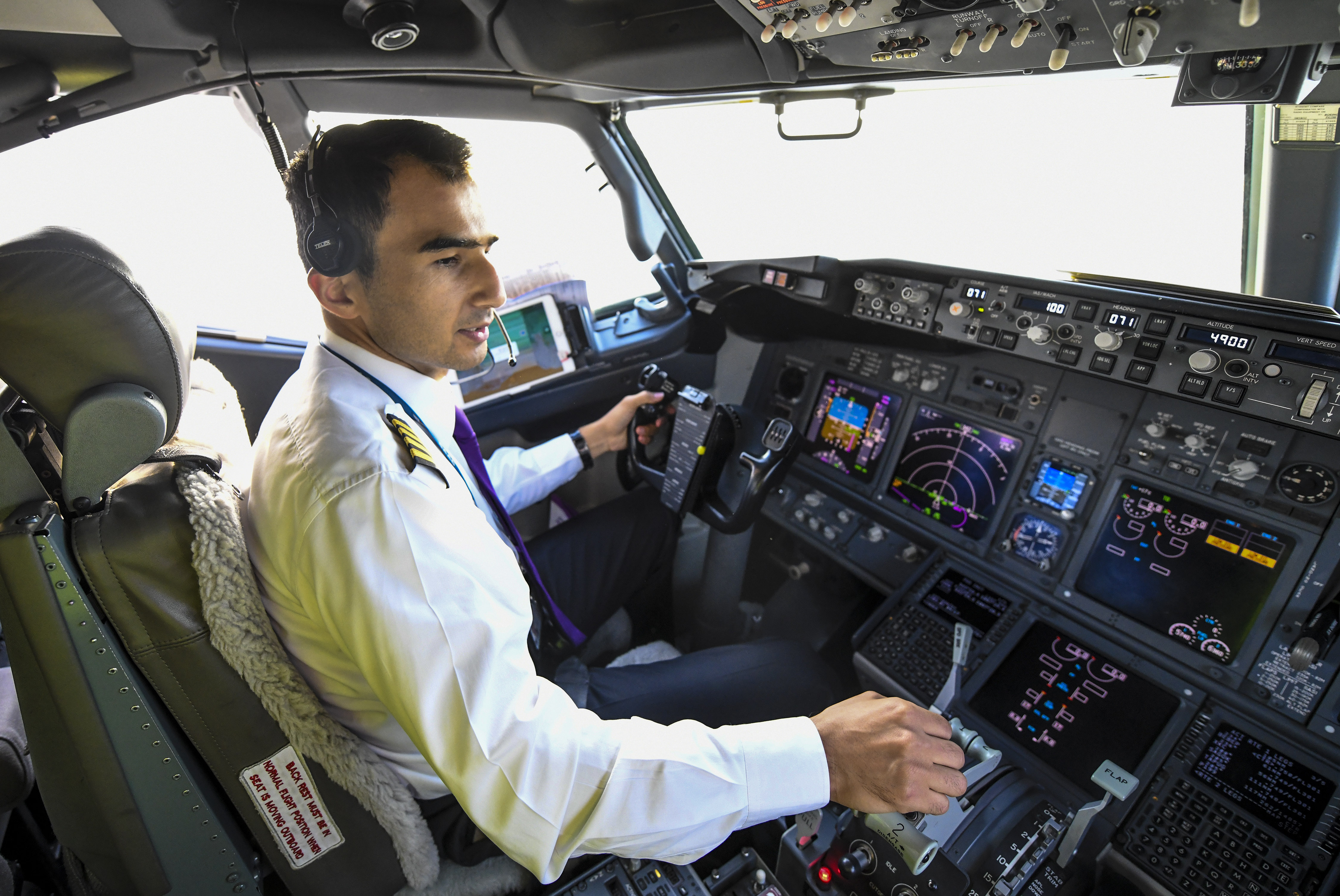
Abuduerxiti Abulaiti checks the aircraft before takeoff at Diwopu International Airport in Urumqi, northwest China's Xinjiang Uygur Autonomous Region, April 17, 2020. (Xinhua/Wang Fei)
REACHING FOR THE SKY
Abuduerxiti was born in an ordinary family in the city of Yining, Ili Kazakh Autonomous Prefecture. His father worked in road maintenance and his mother was a housewife. Like many children in the remote region, Abuduerxiti never left his hometown, let alone fly a plane.
"I had never seen a plane before high school, and I had never sat on a plane before graduating from college," he said.
Things drastically changed for the young lad in 2000. During that period, China launched the "Xinjiang classes" program where they sent students from the region to study for free at top schools in more economically developed areas.
Abuduerxiti was one of the lucky few to have been chosen to attend a "Xinjiang class" in the city of Ningbo, east China. This was one of the defining moments which led him to attain his pilot wings.
As one of the first graduates of these special classes, Abuduerxiti went on to study at a university in Beijing. After graduating, he decided to apply for the Hainan Airlines' pilot recruitment program instead of getting a job in the capital.
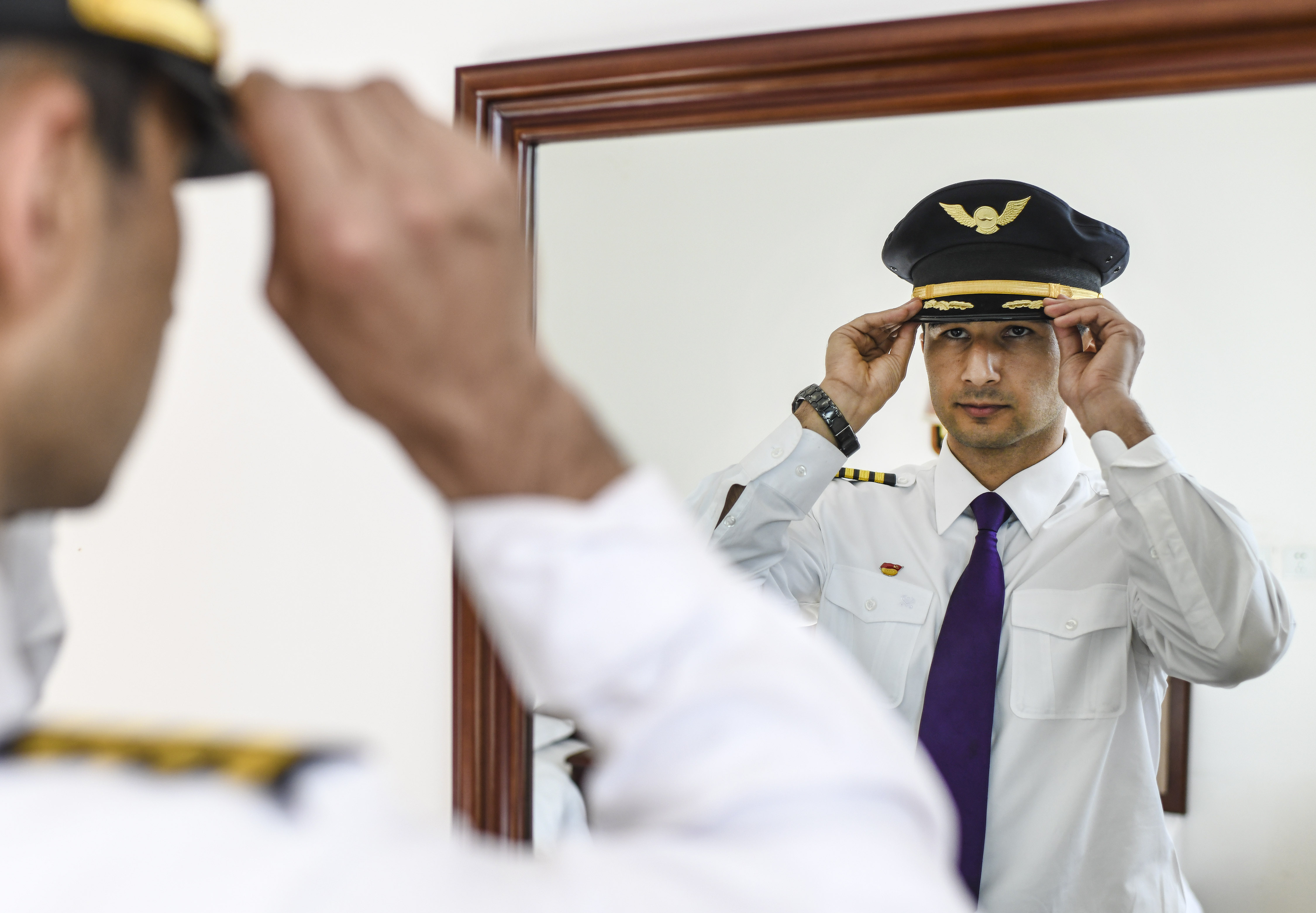
Abuduerxiti Abulaiti checks his uniform before takeoff in Urumqi, northwest China's Xinjiang Uygur Autonomous Region, April 22, 2020. (Xinhua/Wang Fei)
To his surprise, Abuduerxiti passed the rigorous physical tests. He was then selected as a student pilot and was sent to the United States to continue his studies.
He believed that student pilots like him had to work harder than pilots who were aviation major graduates. In the United States, he worked so hard that he used to record all his lectures and listen to them again at night.
This was the secret to completing all his courses. He later went on to obtain a private pilot's license, an instrument rating license and a commercial pilot's license in only 10 months, two months ahead of schedule.
His pilot career took off in 2010 when he became a co-pilot of a Boeing 737 plane. Abuduerxiti moved up the ranks and became a captain six years later. But to this day, he sees every flight he takes as if it was his first, remembering what his instructor once told him, "It's not just the steering wheel you are holding in your hands but also the lives of many others."
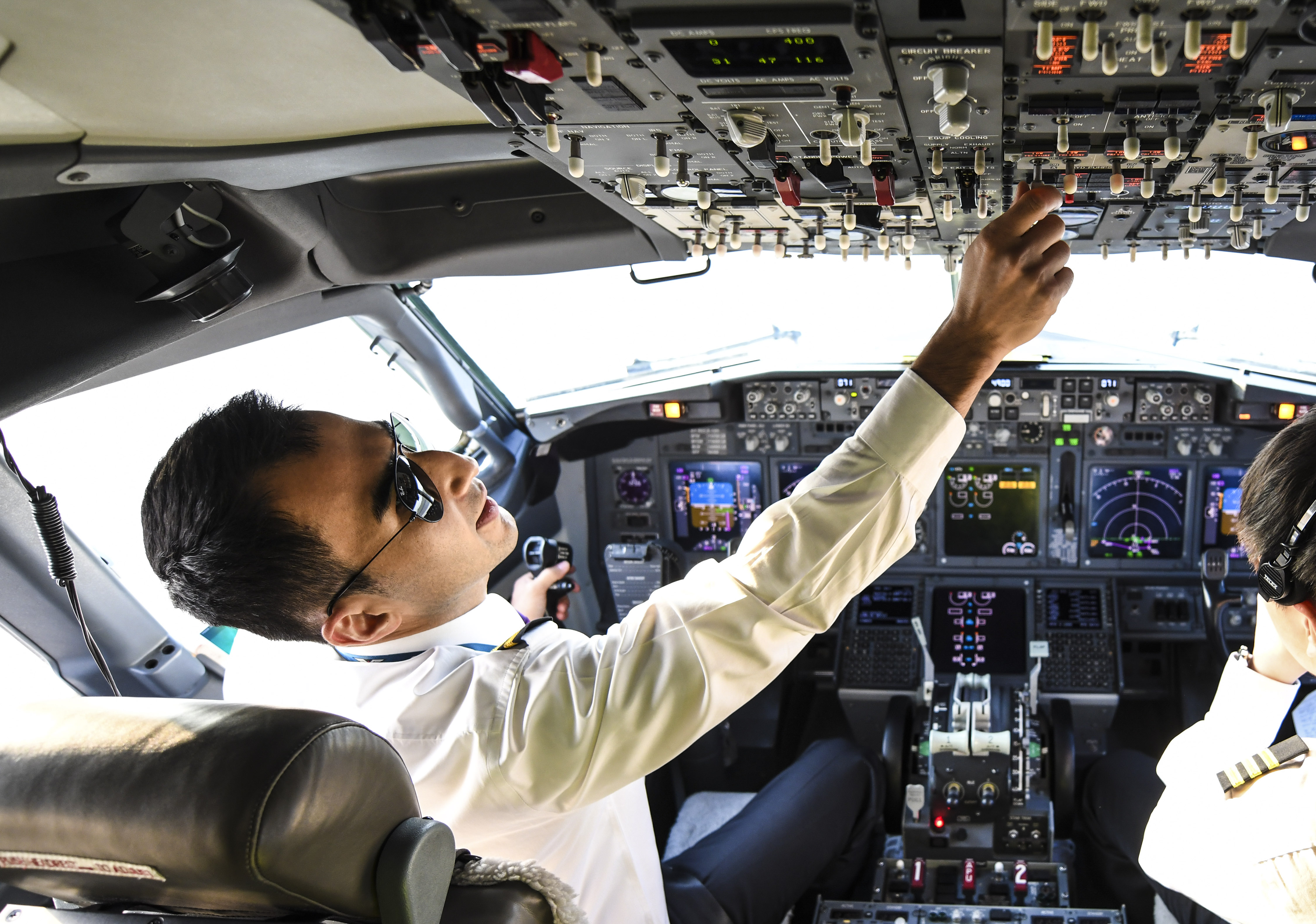
Abuduerxiti Abulaiti checks the aircraft before takeoff at Diwopu International Airport in Urumqi, northwest China's Xinjiang Uygur Autonomous Region, April 17, 2020. (Xinhua/Wang Fei)
Yet, there is one frightening experience he could never forget -- the flight from Urumqi to Yinchuan on Dec. 15, 2016. His plane climbed to an altitude of about 30,000 feet, and all of a sudden the flight instruments failed. He had never encountered anything like it before.
"It was like when you drive a car very, very fast, and suddenly everything stops working," he described.
At that instant, he felt a rush of panic going through his body but thankfully it didn't last for long. Abuduerxiti managed to calm himself down in just a matter of seconds. He went through the checklist with his co-pilot and eventually was able to land the aircraft safely. Even though his back was drenched with sweat, the passengers didn't feel a thing and didn't realize what had happened.
"As a captain, it's my responsibility to transport every passenger safely to their destination," he expressed.
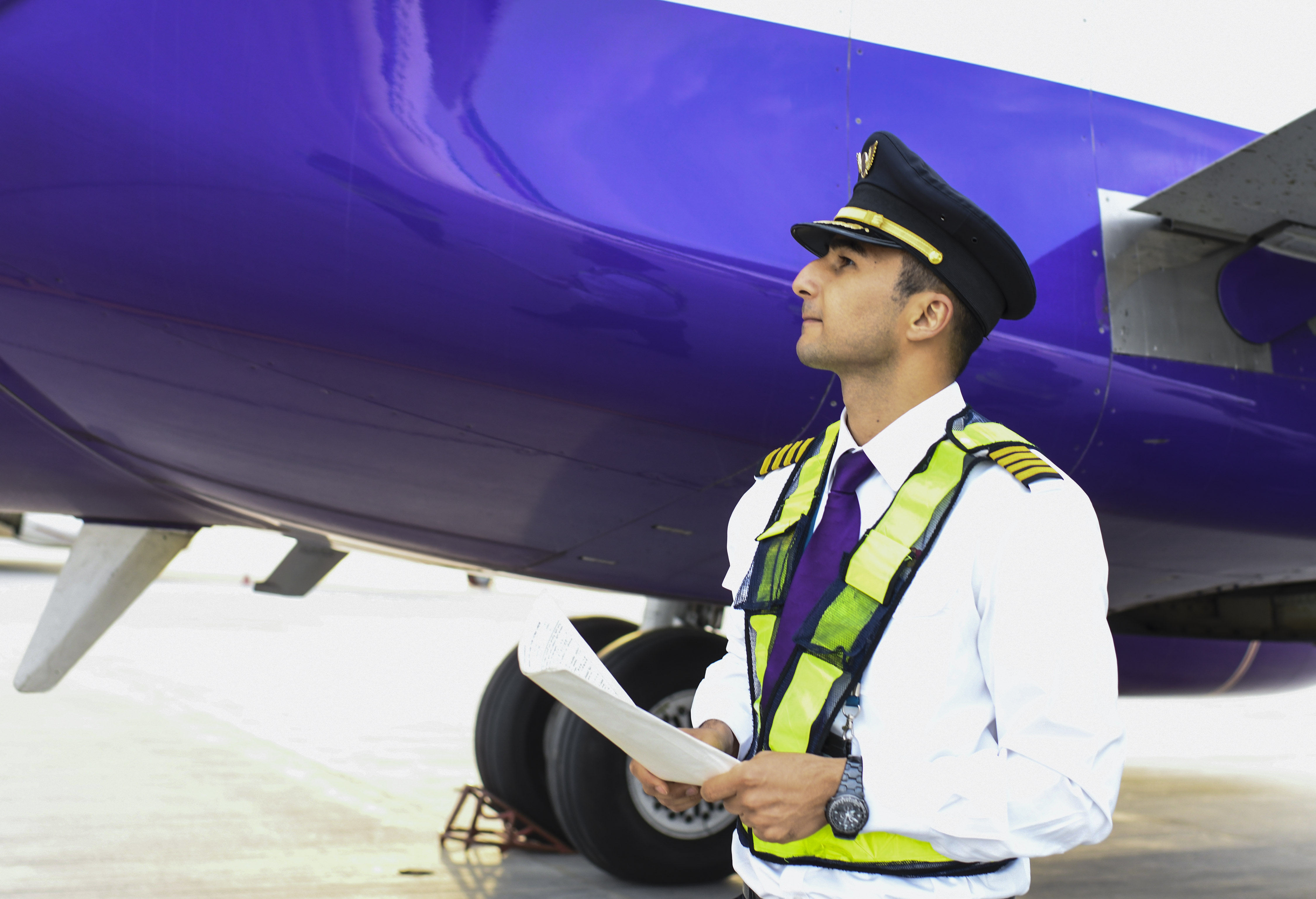
Abuduerxiti Abulaiti checks the aircraft before takeoff at Diwopu International Airport in Urumqi, northwest China's Xinjiang Uygur Autonomous Region, April 17, 2020. (Xinhua/Wang Fei)
FLYING OVER THE TIANSHAN MOUNTAINS
In 2014, Urumqi Air was launched to meet the increasing demand for air travel in Xinjiang, the core area of the China-proposed Belt and Road Initiative.
It was then Abuduerxiti joined the company and began to fly over the land where his dreams of flying started. He was assigned the company's first flight and coincidentally, the destination was to his hometown Yining.
"That's where my dream began. Today, I'm flying home," he uttered to himself at the time. During that memorable trip, he flew over the Tianshan Mountains and the Sayram Lake, circled over the Ili River, and finally landed at Yining Airport.

Abuduerxiti Abulaiti enjoys his family time in northwest China's Xinjiang Uygur Autonomous Region, April 26, 2020. (Xinhua/Wang Fei)
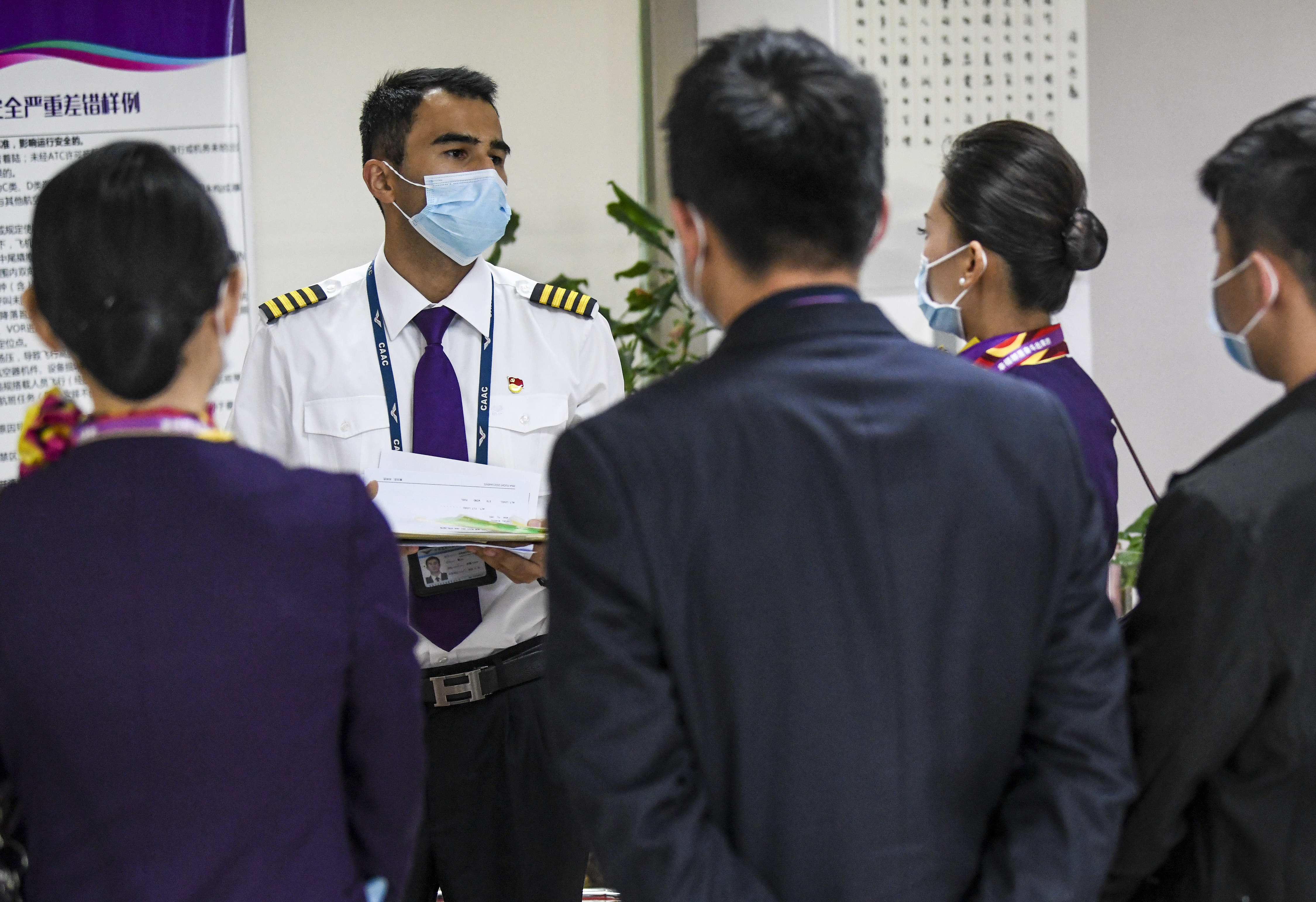
Abuduerxiti Abulaiti discusses with the flight crew before takeoff in Urumqi, northwest China's Xinjiang Uygur Autonomous Region, April 17, 2020. (Xinhua/Wang Fei)
As a captain instructor, Captain Abu works four or five days a week and often flies over the towering Tianshan Mountains, a symbol of Xinjiang.
Abuduerxiti has realized that the region's aviation industry has come a long way just like he has. Xinjiang has more flights than ever before, connecting the once-remote area to Singapore, Japan, Russia and many other countries.
"When I was a child, I only had a dream of flying over the Tianshan Mountains. But since then I have also crossed the oceans. My reality has surpassed my dreams and sky's the limit," he said. ■



